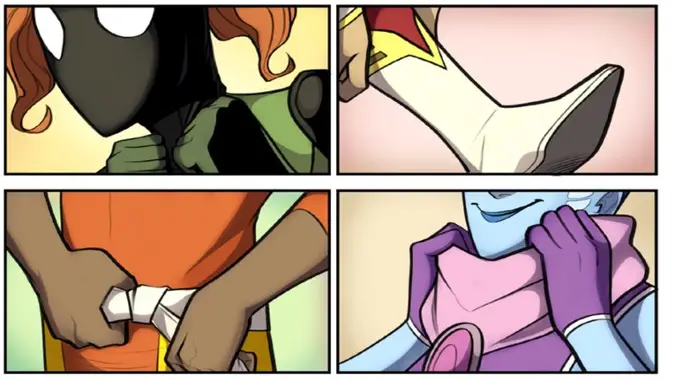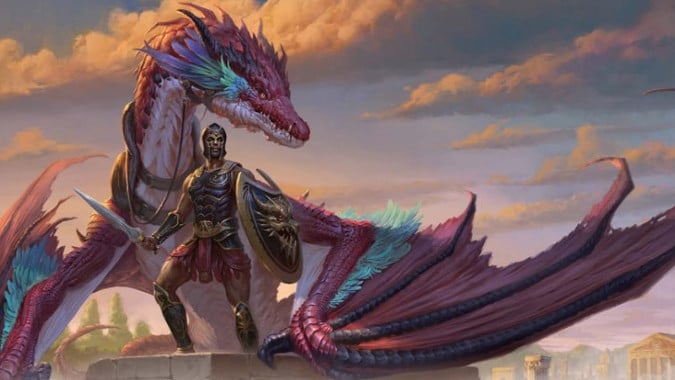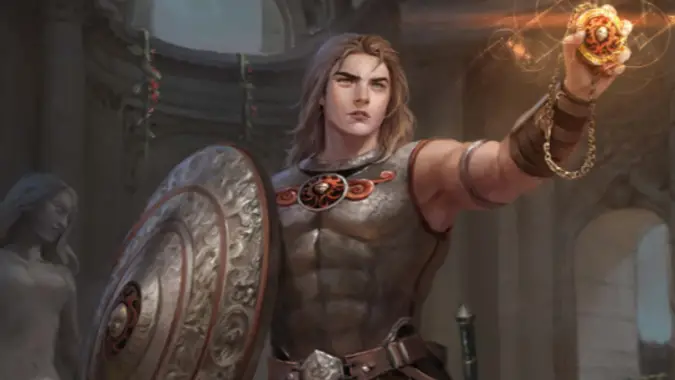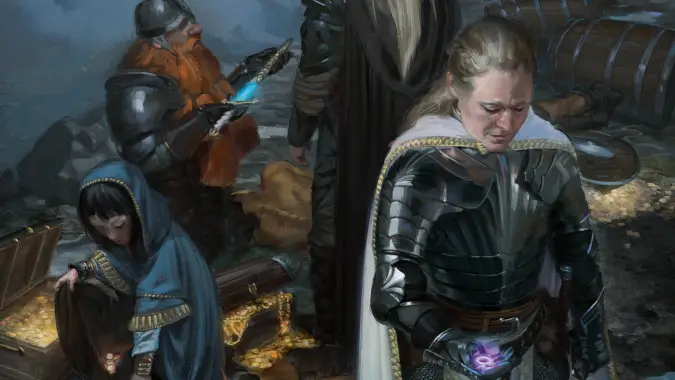How to run your own tabletop RPG session

Everyone runs their game differently, and I don’t mean to even try and tell you this is the way to be a game master/DM/whatever term you use for the person who runs the game here. Instead, what I want to do is to pass on some things that I’ve found helpful in the past, and also, help you avoid some mistakes I’ve made. Because wow, have I made a lot of mistakes over the years running various games.
Not every piece of advice will work for every situation, of course. But I hope some will prove useful over time.

Do prepare
One of the things that trips me up quite frequently is that I don’t like to prepare for a session. I’m smart, I’m creative, I’ll just wing it! And then when I get there I have no idea what’s going on, when the players invariably ask me what a character’s name is I have no idea and have to make one up on the spot — this is how Randy the Kobold became an NPC who lasted for two years — and otherwise, it can all go wrong terrifyingly quickly.
Preparation doesn’t have to be exhaustive — going ahead and setting up a couple of encounters beforehand and having a cheat sheet with a list of names to use in a pinch counts as preparation. Improvisation is great, but don’t forget that one great tool for improvisation is to have a basic idea of what could happen so you have a place to react from. Don’t be afraid of doing some prep work, it won’t make your sessions stale or anything.

Do improvise
Now, everything I just said? That doesn’t mean improvisation is bad. It just means you need to use it properly and judiciously. If your players are presented with a scenario you spent hours working on and somehow decide that no, they’re neither going to investigate the spooky mansion on top of the hill nor are they going to look into Deacon Blackfrost’s sinister criminal friend Stabbers McKillsalot, but instead they’ve fixated on a throwaway NPC you introduced to the session just to have someone at the old Temple when they got there? Let them. Go look at your notes for Stabbers McKillsalot and steal some of the things you’d intended for him and let them feel like geniuses.
This is, after all, a game. It’s not about them unraveling your clever plot that you spent hours on, it’s about them having fun. If they have fun revealing that Dave is in fact responsible for the rash of brainless bodies being found, that’s absolutely fine, and you can always recycle Stabbers McKillsalot later.

Know your group
This one is really difficult at times, and it requires you to pay attention to your players and what they want. This is not always easy. But let me present it in a simplistic way. If your players are all about killing monsters and reaping the rewards of killing monsters — if they want a tabletop version of Diablo — do not force them to try and unravel the complicated political intrigues of a byzantine nation-state of shifting alliances. They’ll be miserable, and they’re almost certainly just going to murder Duke L’Pierre instead of putting up with his complicated attempts to ruin their reputation with the Dowager. They probably won’t even care who the Dowager is.
Likewise, if your players are huge fans of complex shifting political narratives, don’t keep forcing them into The Caverns of Corruption to hack down waves of faceless horrors. Try and make an effort to figure out what your players like and don’t like — consent is a very big deal in role playing games, so absolutely try and make sure you and your players are on board with the same things. If a player is phobic about spiders to the point where it freaks them out to even hear about them, you probably don’t want to use Driders in your game, for example.
It’s also worth trying to tailor the game you choose to run to your group. Sometimes Dungeons and Dragons 5e or Pathfinder might be absolutely the perfect choice, and sometimes, they’re really not.

Pay attention to yourself
Are you stressed out? Upset? Have a lot going on? It’s okay to cancel a game.
I’m going to repeat that, because I know as a GM you often feel responsible. You’re supposed to be on, the one running everything. But sometimes, you just can’t do it. You have a doctor’s appointment and some conversations with the bank about your mortgage, or one of your friends is in town and you haven’t seen her in years, or you were up late working and you’re just wiped out. Running a game often means juggling people’s schedules and you often feel utterly stretched out, and sometimes, it’s just okay to say sorry, guys.
This is an incredibly important lesson to learn for everyone involved. Yes, you want to run that game and play with friends, that’s awesome. But don’t burn yourself out. Don’t turn it into a chore or something you hate. If there’s a conflict or you’re just not physically or mentally up to it, don’t be so afraid to make that call that you end up running a game no one enjoys.

Be open to new ideas
One of your players wants to play a Hobgoblin Paladin. In your setting, Hobgoblins are part of a militant and militaristic empire that crushes everyone before them, so you have no idea how a Lawful Good Hobgoblin could exist. You’re about to say no.
I’m suggesting now that you instead say “yes, and…” to them. If they came to you with this idea, it means they’re likely already thinking about it. So say “Okay, how did you end up on this path” and let them do some or all of the work of explaining how their Hobgoblin ended up a servant to Boralan, the Shepherd of Justice and the LG deity in your setting. You don’t have to invalidate your entire setting to do this — most Hobgoblins are still in the Empire of Crushed Bones, but your player’s Hobgoblin doesn’t have to be one of them.
Things like this get your players invested in the game, and let them feel like they have a stake in it, ownership of their character. It’s always good to be at least willing to listen — sure, you may have to draw the line at that one player who is just obsessed with Flumphs, but always at least give them a chance to make a case before you say no.
Hopefully some or all of this is of use. Have fun out there.
Originally published October 16, 2019. Updated January 22, 2021.
Please consider supporting our Patreon!
Join the Discussion
Blizzard Watch is a safe space for all readers. By leaving comments on this site you agree to follow our commenting and community guidelines.
 @MatthewWRossi
@MatthewWRossi




